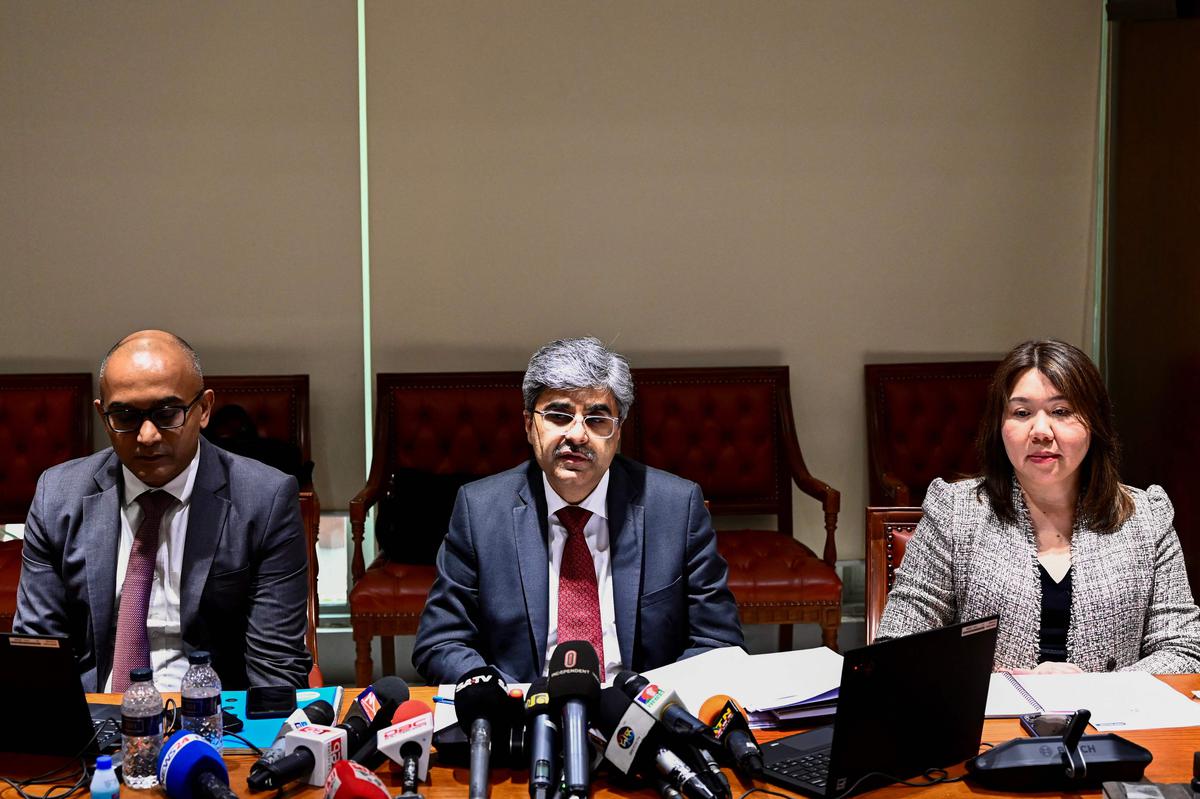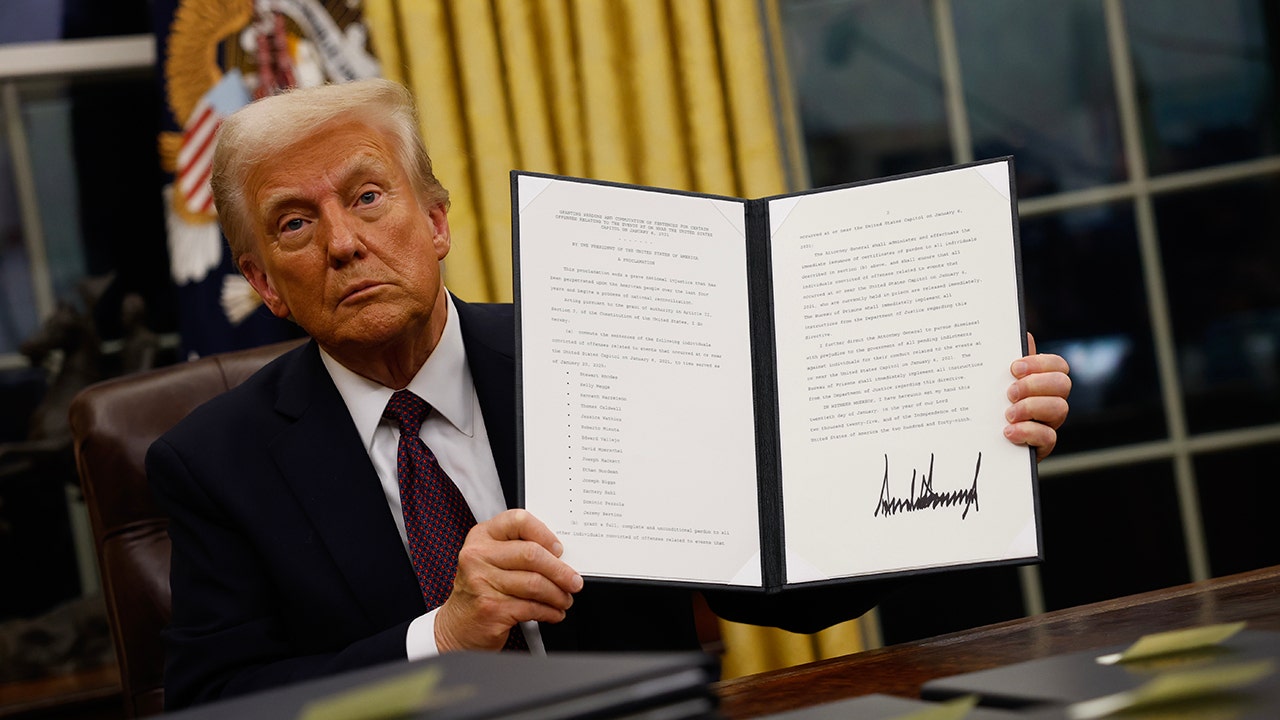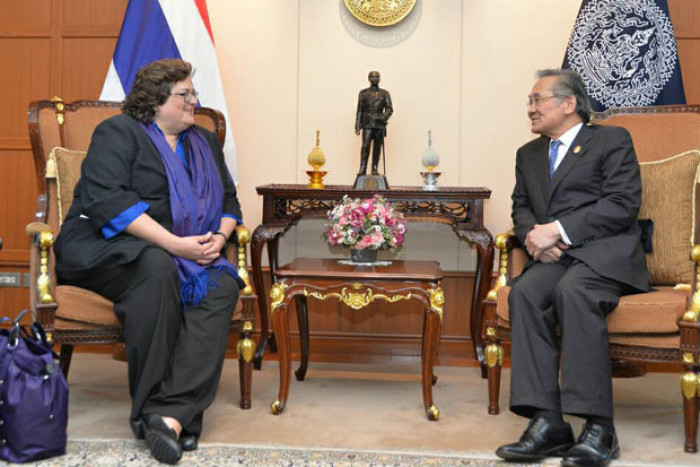Pakistan's Economic Crisis Deepens: IMF Review Of $1.3 Billion Loan Package

Table of Contents
The Severity of Pakistan's Economic Crisis
Pakistan's economy is facing a multifaceted crisis characterized by high inflation, dwindling foreign exchange reserves, a depreciating Pakistani Rupee, and soaring debt levels. This precarious situation threatens the country's social and political stability.
-
Current Inflation Rate and its Impact: Inflation is currently hovering at alarmingly high levels, significantly eroding purchasing power and pushing millions into poverty. The rising cost of essential goods, including food and fuel, is causing widespread hardship. This hyperinflation directly impacts Pakistan's economic crisis, fueling social unrest.
-
Foreign Exchange Reserves and Import Implications: Pakistan's foreign exchange reserves have plummeted to critically low levels, severely limiting the country's ability to import essential goods and services. This shortage exacerbates the existing economic challenges and hinders economic growth. The dwindling reserves are a key indicator of the severity of Pakistan's economic crisis.
-
Pakistani Rupee Exchange Rate: The Pakistani Rupee has significantly depreciated against major international currencies like the US dollar and the Euro, further increasing the cost of imports and fueling inflation. This currency devaluation is a major symptom of Pakistan's economic crisis.
-
Debt Burden and Sustainability: Pakistan's overall debt burden is unsustainable, consuming a large portion of the government's budget and leaving little room for essential social programs and investments in infrastructure. The debt crisis significantly worsens the overall economic crisis.
-
Impact on Various Sectors: The crisis is impacting various sectors, including energy (fuel shortages and power outages), agriculture (reduced crop yields due to high input costs), and manufacturing (reduced production and export capabilities). These sectoral challenges contribute to the larger Pakistan economic crisis.
The IMF Loan Package and its Conditions
The IMF's $1.3 billion loan package is conditional upon Pakistan implementing a series of stringent austerity measures. These measures are designed to stabilize the economy but could also have significant social consequences.
-
Austerity Measures: The IMF demands significant tax reforms, including broadening the tax base and improving tax collection efficiency. Furthermore, substantial cuts in energy and fuel subsidies are expected, likely leading to further price increases. These austerity measures are a key condition of the IMF loan to alleviate Pakistan's economic crisis.
-
Impact on the Pakistani Population: The austerity measures will inevitably impact the Pakistani population, particularly the most vulnerable segments of society. Increased prices for essential goods and reduced access to social services could lead to widespread hardship and social unrest. This social cost is a critical consideration within the context of Pakistan's economic crisis.
-
Loan Disbursement Timeline: The disbursement of the loan is subject to the timely implementation of the agreed-upon reforms. Any delays in implementing these reforms could lead to further delays in loan disbursement, potentially worsening the economic crisis. The timeline is crucial in navigating Pakistan's economic crisis.
-
Political Implications: Accepting the IMF's conditions could have significant political implications, potentially leading to public discontent and political instability. The government's ability to navigate these political challenges will be critical in addressing Pakistan's economic crisis.
Alternative Solutions and Potential Outcomes
While the IMF loan is crucial, Pakistan should explore alternative solutions to address its economic crisis.
-
Alternative Financial Assistance: Seeking financial assistance from friendly nations, regional organizations, or other international institutions could supplement the IMF loan and provide additional resources. Diversification of financial sources is critical in managing Pakistan's economic crisis.
-
Structural Reforms: Implementing structural reforms to enhance economic productivity, improve governance, and attract foreign investment are essential for long-term economic stability. These reforms are crucial for overcoming Pakistan's economic crisis.
-
Boosting Exports: Strategies to boost exports, increase competitiveness, and diversify export markets are critical for improving Pakistan's balance of payments and reducing its reliance on imports. This strategy is critical to address Pakistan's economic crisis.
-
Potential Outcomes: Accepting the IMF loan could offer short-term stability but at the cost of significant social hardship. Rejecting the loan could lead to a more severe economic collapse. Careful consideration of both scenarios is essential in managing Pakistan's economic crisis.
The Role of Political Stability
Political stability plays a crucial role in Pakistan's ability to effectively address its economic crisis.
-
Investor Confidence: Political uncertainty undermines investor confidence, discouraging both domestic and foreign investment, hindering economic growth. Political stability is essential to alleviate Pakistan's economic crisis.
-
Policy Implementation: Political infighting and lack of consensus can hamper the effective implementation of economic reforms, delaying recovery efforts and exacerbating the crisis. Political consensus is key to overcoming Pakistan's economic crisis.
-
Addressing the Crisis: A strong political consensus is essential to implement tough but necessary reforms and to build confidence in the country's ability to overcome its economic challenges. This political stability is crucial to effectively address Pakistan's economic crisis.
Impact on the Pakistani People
The economic crisis is inflicting severe hardship on the Pakistani people, impacting poverty levels, food security, and access to healthcare.
-
Rising Food Prices: Soaring food prices are disproportionately affecting the most vulnerable segments of society, increasing malnutrition and hunger. This impact is a severe consequence of Pakistan's economic crisis.
-
Unemployment: Increased unemployment is leading to social unrest and increased poverty, further exacerbating the crisis. Job losses are a significant consequence of Pakistan's economic crisis.
-
Access to Essential Services: Reduced access to essential services like healthcare and education is undermining human development and exacerbating existing inequalities. The limited access to these services is a severe repercussion of Pakistan's economic crisis.
Conclusion
Pakistan's economic crisis is severe, characterized by high inflation, dwindling reserves, and a growing debt burden. The IMF loan package, while crucial, comes with stringent conditions that could further burden the population. Alternative solutions must be explored, and political stability is paramount for effective policy implementation. The human cost of this crisis is substantial, impacting poverty, food security, and access to essential services. Understanding the complexities of Pakistan's economic crisis is crucial for informed discussion and effective policy-making. Further research and analysis are needed to better understand the long-term implications of this crisis and the effectiveness of the implemented solutions. Stay informed about developments concerning Pakistan's economic crisis and the IMF's role.

Featured Posts
-
 Overlooked By Wolves Now The Heart Of Europes Best
May 09, 2025
Overlooked By Wolves Now The Heart Of Europes Best
May 09, 2025 -
 Who Is David Exploring The Top 5 Theories Surrounding The He Morgan Brother In High Potential
May 09, 2025
Who Is David Exploring The Top 5 Theories Surrounding The He Morgan Brother In High Potential
May 09, 2025 -
 Madeleine Mc Cann Look Alike Detained At Uk Airport
May 09, 2025
Madeleine Mc Cann Look Alike Detained At Uk Airport
May 09, 2025 -
 Barys San Jyrman Hl Yhqq Hlm Dwry Abtal Awrwba
May 09, 2025
Barys San Jyrman Hl Yhqq Hlm Dwry Abtal Awrwba
May 09, 2025 -
 Snowfall Warning Issued For Parts Of Western Manitoba
May 09, 2025
Snowfall Warning Issued For Parts Of Western Manitoba
May 09, 2025
Latest Posts
-
 News From The Bangkok Post The Push For Better Transgender Rights
May 10, 2025
News From The Bangkok Post The Push For Better Transgender Rights
May 10, 2025 -
 The Bangkok Post And The Ongoing Struggle For Transgender Equality
May 10, 2025
The Bangkok Post And The Ongoing Struggle For Transgender Equality
May 10, 2025 -
 The Impact Of Trumps Executive Orders On The Transgender Community A Call For Stories
May 10, 2025
The Impact Of Trumps Executive Orders On The Transgender Community A Call For Stories
May 10, 2025 -
 Examining Transgender Equality Issues Highlighted By The Bangkok Post
May 10, 2025
Examining Transgender Equality Issues Highlighted By The Bangkok Post
May 10, 2025 -
 The Bangkok Post And The Fight For Transgender Equality In Thailand
May 10, 2025
The Bangkok Post And The Fight For Transgender Equality In Thailand
May 10, 2025
